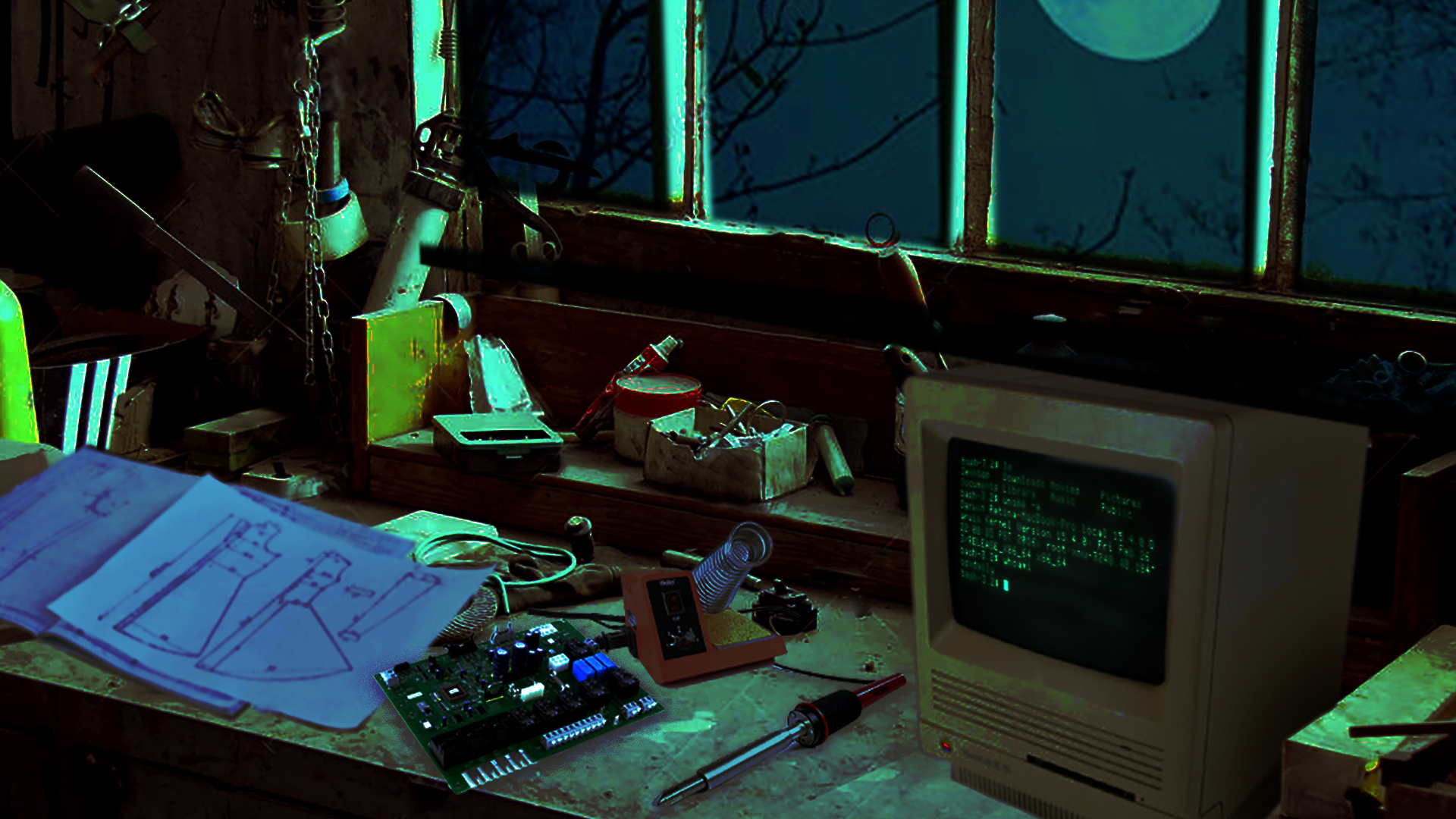Values. We all have them. We absorb them from our peers and communities and we apply them to living our lives, consciously or unconsciously. What about values in businesses? In this article we look at the value of values in business, and how to rediscover or update yours.
In a time when it was simple and easy to walk the hallways, kitchens and water coolers of our offices, it was pretty common to bump into colourful posters en route. They might shout CREATIVITY or whisper compassion. Maybe we paused to take in the view; maybe we breezed right by. Just part of the wall furniture, right? We knew what they were – our values. Came with the flat-packed, self-assembly corporate culture we’d adopted when we signed on the bottom line.
"I remember seeing tatty ‘Passionate about Customer Service’ cardboard displays on the tables in the staff canteen when I worked with one famous high street retailer. They were being used to squish old tea bags into."
Values and virtues
Or perhaps it was different for you? Maybe those words, that image, didn’t come out of a catalogue. They were a part of the magnetic attraction that got you interested in the first place. Perhaps there weren’t any finely crafted words, but something a bit more visceral. It was how that business, those people, ‘showed up’. Like they were starting a sentence that you already knew the end of. Or strumming out a rhythm that your toe was already tapping. Something just clicked and there you were, at ease and at home.
If you’re anything like us, you’ll recognise both scenarios: ‘Values – oh yeah’ versus ‘OMG – great values’. As it happens, we’re just revisiting ours. For us, they’re essential. For example they shape the behaviour that we aspire to, particularly when we find ourselves in unfamiliar or uncomfortable situations.
So this feels like a good time to open a broader conversation, based on lived experience. Our key questions are: What’s the purpose of values in business life? What value do values bring? How can we recognise a value in action? And finally, what are some of the ways to discover, or rediscover, our own values?
What are values, and what job do they do?
On a personal level, your values are the things that you believe are important in the way you live and work. They shape your priorities and the choices you make in life. They’re the principles that tell you what’s right and wrong.
In our experience, that holds broadly true for a business. We think in terms of the holy trinity of vision, purpose and values:
- Vision: What’s the change you want to see in the world?
- Purpose: How are you going to make that change happen?
- Values: What values do you need to hold to make the change happen?
We’ve written more about how to discover your purpose and the role played by values in How do I find my Why? We think values are the lockstone in that trinity. They’re the beliefs and behaviours shared by the people inside an organisation. They’re the attitudes that you bring to the work you’re doing to bring about the change you want to see in the world.
They matter because without them, it’s all too easy to go off track. Being clear on your values makes it simpler to pursue the right opportunities and say no to work that doesn’t feel right.
"Values shape how you behave when no one else is looking."
Values guide the way you act towards each other. They influence the big decisions – do we employ this person? Do we focus our attention on this market or this one? What do we stand for? – and the small ones – how do I act when my colleague is having a bad day? How do I respond to this client demand?
Seeing values in action
Founder and Californian rock climber Yvon Chouinard was one of the first to climb the big walls at Yosemite, Yvon was shocked at the damage that pitons caused to the rock face. But there was an alternative: aluminium chocks that could be wedged and removed by hand, without hammering. Alongside passion and technical excellence, responsibility (to people and the planet) was added as the third founding principle – value – of his expanded enterprise, Patagonia.
You can see values in action at every level of Patagonia’s business. From its inception back in the sixties as a mountaineering equipment business, via a sometimes rocky road to its position today as a founding father of business for good, Patagonia has led with its values.
As we wrote in The power of the Founder’s Story. And how to write yours, by the early 1970s the young Patagonia had decided that doing less harm to the planet was not enough. Instead it would be a force for positive good. You can easily trace this as an evolution of the founder’s story and values. They began active environmental campaigning as well as supporting other campaigners. In 1986, the business committed 10% of profit to supporting environmental campaigning and later upped it to 1% of sales – regardless – and have steadfastly maintained that commitment ever since. And every time they have amplified their environmental and social mission, they have experienced growth – a quadrupling of sales over the period, with revenues reaching $1 billion.
"We were able, in many ways, to keep alive our cultural values, even during the heavy-growth years, and after the shock of the 1991 layoffs. We were surrounded by friends at work who could dress however they wanted, even barefooted. People ran or surfed at lunch, or played volleyball in the sandpit at the back of the building."
How we revisited our values – an exercise
After a year out of our office, and with team members who’ve never met each other in person, time felt right to look again at ours. Without the glue of social interaction to reinforce them, perhaps the power of our own values was fading. Like the neglected cheese plant in the corner of the office, our values needed some TLC.
Now we’re not experts in this, but we’ve worked on uncovering enough Whys for our clients to have a good idea of where to begin. We started the work to uncover our values the best way we know how. By getting together and telling stories.
It was the first day that everyone had been back in the office since March 2020. Another familiar environment made strange by the new reality of socially distanced desks and mask wearing. Pandemic behaviour feels awkward at first, before the edges rub off.
Sometimes it can be hard to locate values from a cold standing start. So we began in a place that is as far away as possible. With a rant. We asked everyone to think of a behaviour that just feels wrong. What really winds you up about the world? What makes you mad? What is just plain out of order? Energetically, it’s good to begin at this point. It’s refreshing and freeing to be given permission to rant. To pour your discontent onto paper and then share it with people that care about you. Sounds counterintuitive, maybe, but it can be difficult to pin down values in a general way. It’s a bit of an ephemeral exercise – but we all know when we feel a clash. It’s often easier to articulate the behaviour that makes us angry or unhappy than it is to pinpoint what makes us feel good. So everyone ranted silently, on paper, for 10 minutes and then we shared what we’d written. It was a big list. There’s a lot to infuriate you during a year and a half of living under lockdown!
Come in hot
Flip it
Sharing the stories was cathartic. But the real power of the exercise comes when you flip all those negative emotions and experiences into positive ones. So the story of being infuriated by middle-lane motorway drivers or being frustrated by people who say ‘it has to be done like that because that’s the way we always do it’ becomes a call for seeing other points of view, and the power of thinking differently.
Half an hour with post-it notes and a flip chart (oh, the luxury of putting real post-it notes on a real board after a year and a half of Zoom!) and we were on the way to defining the shared values of the team.
Grouping similar ideas was helpful – is thoughtfulness the same as empathy? Is honesty the same as integrity? Because the words were all rooted in personal stories people were able to talk about the differences and nuances, and a values longlist emerged. It’s full of good ideas.
"There’s a temptation to summarise, to shorten, to buttonhole each value as a single word. Now is the moment to pause."
Don’t oversimplify
Now we come to a tricky moment. There’s a temptation to summarise, to simplify, to buttonhole each value as a single word. That can be useful, so long as you remember that word isn’t your value. It’s a mnemonic for that value. A tag, a file name, under which you’ll find an exploration of how that value relates to your vision and purpose. And, vitally, stories of that value in action.
So among our pile of post-its which we could broadly label ‘boldness’ come phrases like ‘embrace the challenge’ and ‘more Francis Rossi, less Status Quo’. The underlying value helps us see that it’s our job to challenge, and to risk being wrong, as we help clients rediscover their true purpose, and tell their stories with honesty and humanity.
And this is just the beginning of the conversation. We’ll get together again to revisit the list, and see what we can do to bring the new shared values to life. Understanding and articulating our shared beliefs, what’s important to us, and what feels right will help us to support each other to do our best work.
We’ll update this blog as we progress. So if you want to follow the process sign up to The Clec, where we share our freshest stories first.
So far, so good…
Should you revisit your values? Are they unchanging or set in stone? If the essence of a value is found in the stories we share about them, shouldn’t those stories be revisited often? Aren’t we all updating our narratives in the wake of BLM, for instance? And we’re of the opinion that it’s pretty natural for those narratives to sometimes throw light on new values that we need to embrace. We all have to find new ways of working, and maybe the old values don’t fit the new normal. If they’ve become office wallpaper or canteen rubbish bins, it’s definitely time to look at them again.






What do you think?